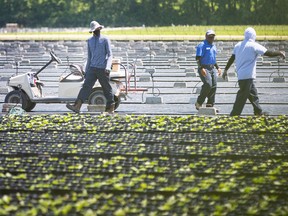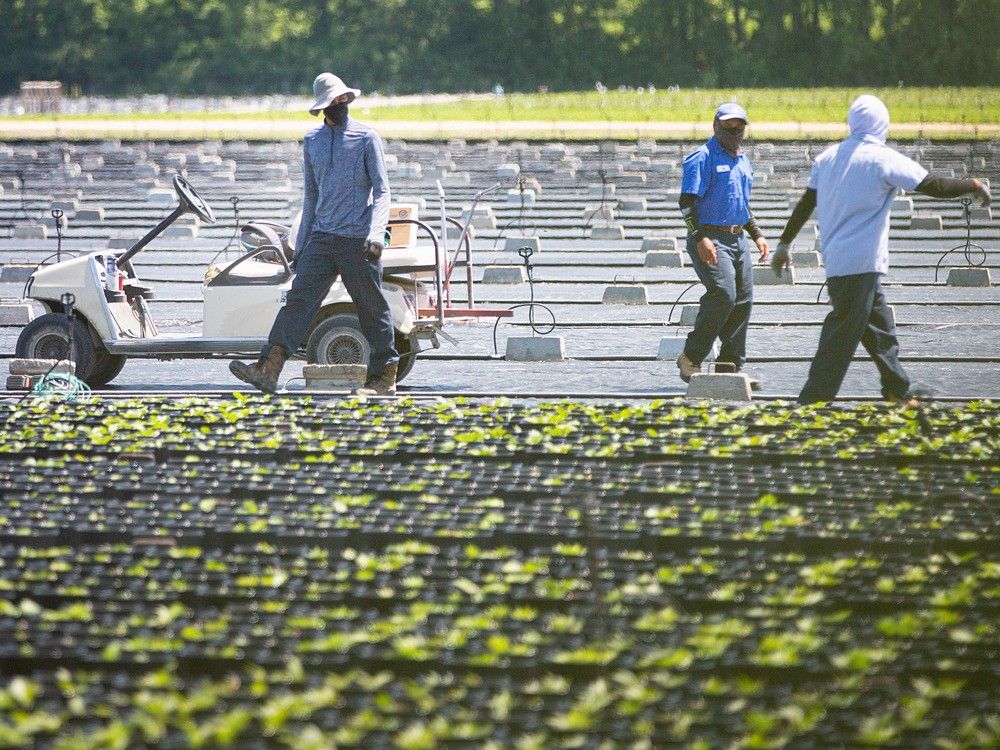Published May 03, 2024 • 5 minute read

A review early next year will determine the fate of Kingsville’s licensing bylaw for boarding, lodging and rooming houses.
It the meantime, it will remain in place.
Article content
An attempt by Coun. Thomas Neufeld to have council reconsider the bylaw, enacted Jan. 8, was defeated late last month following eight speakers from the community appearing before council to speak on the subject.
THIS CONTENT IS RESERVED FOR SUBSCRIBERS ONLY
Subscribe now to read the latest news in your city and across Canada.
- Unlimited online access to articles from across Canada with one account.
- Get exclusive access to the Windsor Star ePaper, an electronic replica of the print edition that you can share, download and comment on.
- Enjoy insights and behind-the-scenes analysis from our award-winning journalists.
- Support local journalists and the next generation of journalists.
- Daily puzzles including the New York Times Crossword.
SUBSCRIBE TO UNLOCK MORE ARTICLES
Subscribe now to read the latest news in your city and across Canada.
- Unlimited online access to articles from across Canada with one account.
- Get exclusive access to the Windsor Star ePaper, an electronic replica of the print edition that you can share, download and comment on.
- Enjoy insights and behind-the-scenes analysis from our award-winning journalists.
- Support local journalists and the next generation of journalists.
- Daily puzzles including the New York Times Crossword.
REGISTER / SIGN IN TO UNLOCK MORE ARTICLES
Create an account or sign in to continue with your reading experience.
- Access articles from across Canada with one account.
- Share your thoughts and join the conversation in the comments.
- Enjoy additional articles per month.
- Get email updates from your favourite authors.
Sign In or Create an Account
or
Article content
The motion to reconsider the bylaw required a two-thirds majority — or five councillors — but it failed in a 4-3 vote.
Boarding, lodging and rooming houses often serve as accommodations for migrant workers from other countries who are permitted to perform seasonal work in Canada.
In explaining his motion to reconsider the bylaw, Neufeld said there are plenty of mechanisms already in place to ensure these operations are run properly.
“I believe a licensing program will put an unnecessary bureaucratic burden on our area farmers and does not create an environment that is conducive to business,” he said.
“It is my opinion that this is an exercise in redundancy and red tape. I feel this is big government overreach and an abuse of power. What sector is this council going to try to control next? And how many more employees do we need to hire to get it?
Neufeld said the cause of the bylaw likely rests in incorrect information posted to social media.
“I am … particularly disgusted by the veiled racist comments I’ve read on social media, which I believe to be the genesis of this bylaw,” he said.
By signing up you consent to receive the above newsletter from Postmedia Network Inc.
Article content
Article content
Many of the requirements of the bylaw — a permit costs $100 — are already being met by other levels of government, said Caesar Colasanti, of Col-Mac Orchards, when he spoke to council.
He objected to the requirement for a criminal background check of employers.
“That blew me away,” he said. “I find this to be offensive and a huge and unnecessary infringement on my privacy.”
Farm owners must undergo extensive vetting to qualify to bring workers into Canada through the temporary foreign workers program, he said, calling the criminal background checks “an infringement on my ability to farm.”
“I truly believe this bylaw will not address any illegal substance production or with hiring and housing illegal workers. The bad players operate in the area with sweet disregard for all levels of government requirements and policies that farm operations like mine must follow.”
Aaron Coristine of the Ontario Greenhouse and Vegetable Growers, said greenhouse growers already pay a “broad spectrum of taxes.”
“We see this as an additional layer of bureaucratic regulation and red tape that is unwarranted and unnecessary.”
Article content
Through the federal government’s Labour Market Impact Assessment (LMIA), which must be approved before hiring foreign workers, employers must demonstrate that foreign workers are needed to fill the jobs, “so there’s no world where it would make sense for us to not treat them well,” he said.
The federal and provincial governments, the LMI process, Canada Border Services and consulate inspections, as well as a number of other checks, provide stringent oversight of employers of foreign workers, including fire and building codes, he said.
As well, the Ontario Ministry of Labour’s new Temporary Health Agency Registry, which will become active in July, requires all users of temporary help agencies to be licensed, he said.
Resident Brenda Gagne said she was “surprised this is being addressed again” since the bylaw passed unanimously in January. “I think this bylaw protects the renters. It protects those who are vulnerable,” she said. “It protects the residents. It controls the number of people in a home for safety. It ensures the occupants are not allowed to cook in the sleeping areas… I see nothing but good coming out of this bylaw.
Article content
“It protects the value of the homes and the surrounding area.”
She objected to the attempt to reconsider the bylaw.
“It just kind of boggles my mind that this bylaw is even being considered to be revoked.”
Elizabeth Ha, of the Ontario Public Service Employees Union and Justica for Migrant Workers, which promotes the rights of migrant farm workers, said the licensing bylaw “protects those who are vulnerable.”
The Residential Tenancy Act does not apply to migrant workers and current municipal bylaw and federal housing standards “fail to properly protect workers from substandard housing,” she said.
She referenced a 2022 letter from the Ontario Human Rights Commission to Kingsville council. “The OHRC urges the town to not only remove barriers to housing that adversely impact migrant workers, but to also use its powers to protect the living and working conditions of all migrant workers who live and work in Kingsville,” the commission wrote.
Laura Mastronardi, of Sunrise Farms, said the bylaw was developed without proper consultation from agricultural representatives.
Article content
“Your licensing bylaw is a highly controversial decision that the Town of Kingsville adopted that lacks stakeholder consultations and aims to penalize business owners unfairly,” she said.
“Nor does it address the true issue at hand — illegal boarding houses.
“This bylaw does not give any protection to our workforce, but conversely only aims to punish the operators and those that hire legal employees and operate legitimate businesses in the town of Kingsville,” she said.
Kathy Mastronardi-Black of Lee and Maria’s farm and market, noting her operation is a small family business, said fire and health inspections take place already and the LMIA process provides rigorous oversight.
“What can a building inspector possibly add to this process to make sure they are safe? Why doesn’t the town trust our own fire inspectors or health inspectors to do their job because they’re clearly doing it?
She also said the bylaw “treats all farms who house agricultural workers at this time. Whether a bunkhouse has two or 50 people inside. This is just not fair.”
Recommended from Editorial
Article content
Kingsville resident Lydia Miljan objected to the review. “I find it actually quite shocking that this is going to be reconsidered only four months into that one-year pilot,” she said.
“What considerations may or may have altered your position? Do you no longer care about the well-being of migrant workers?” she asked.
“What harm does the current bylaws impose on property owners and present presumably greenhouse operators? That outweighs the safety and dignity of residents?”
Kingsville resident Sarah Kelly, noted an out-of-town developer purchased a one-acre parcel of land on Graham Side Road, that was severed off a family farm, then distributed a flyer to greenhouses in the area advertising it as an accommodation for 64 people, despite an application to the town for only 40 people.
“This property is why we need a licensing bylaw,” she said. “We need we need a nimble agency like the town to be able to conduct inspections and quickly act on complaint.”
Article content


